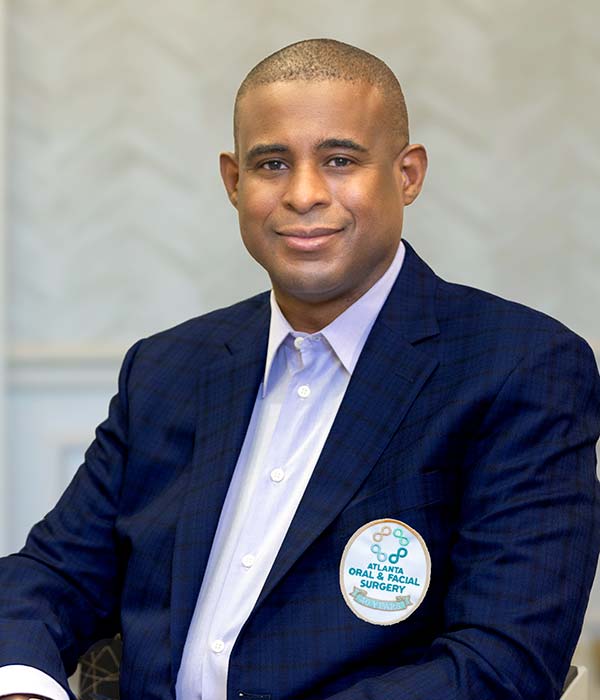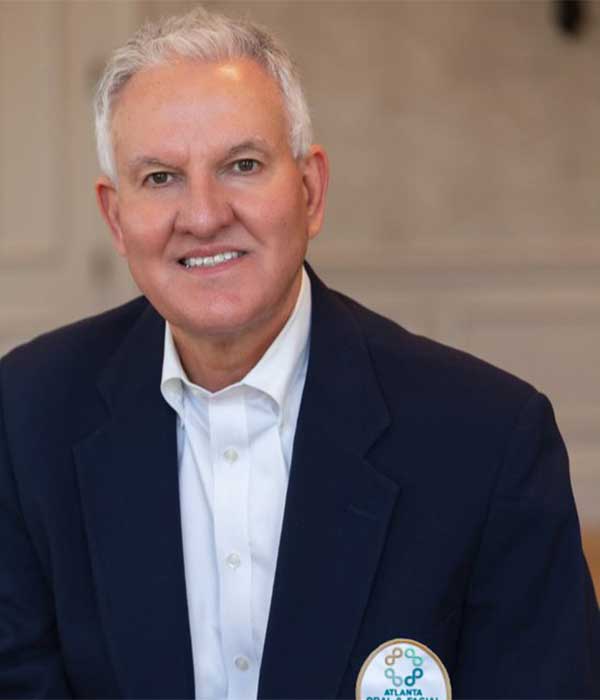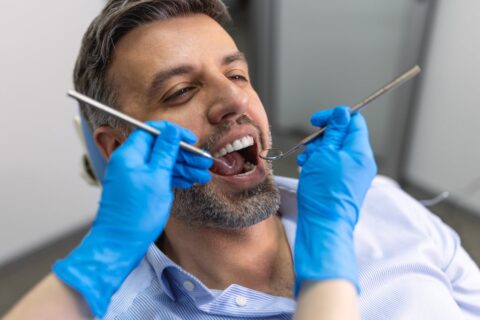Possible Causes of Dental Implant Pain in Metro Atlanta
How Atlanta Oral & Facial Surgery Avoids All-on-Four Issues
Bruxism is essentially the medical terminology for grinding your teeth or clenching your jaw, especially at night. While bruxism is never a healthy habit for your teeth, it is one of the leading factors that cause dental implant pain. Full-arch implants or all-on-fours have no periodontal ligaments, so they will not move when you grind your teeth the way your natural teeth do. The agitation caused by bruxism within your gums and jaw may be why you are experiencing pain within your dental implant. Atlanta Oral & Facial Surgery regularly suggests patients wear a soft nightguard to mitigate the effects of bruxism while they sleep.
The Importance of Oral Hygiene after Full-Arch Implants
Atlanta Oral & Facial Surgery has seen how poor dental hygiene can cause significant dental implant pain. Good dental hygiene will be critical after the placement of dental implants. Failing to brush regularly, floss, and attend regular dental cleanings can compromise the strength of your jaw and cause pain in your full-arch implant. Poor hygiene also makes it much more likely for you to develop complications from a recent all-on-four implant, like infections or damage to the surrounding tissue. Even years after healing, habitually neglecting oral hygiene can cause bone loss that can compromise dental implants and cause pain.
Bone Support Matters for Dental Implants
Bone strength is one of the most important factors to consider when looking into getting any dental implant. Some people’s bone structure will have characteristics that make them a weak candidate for a full-mouth dental implants. Since full-arch implants screw into your jawbone, weak or compromised bones support increases the likelihood of dental implant pain because the implant will not be able to anchor into place firmly. Those with low bone density should have dental implants handled delicately by professionals like Atlanta Oral & Facial Surgery. When someone has compromised bone density, we will often stage implant treatment into two phases to decrease the chances of failure or unnecessary pain.
How Smoking Can Harm Dental Implants
Smoking increases the likelihood of excessive dental implant pain and reduces the success rate for full-arch implants. There are many ways in which smoking harms dental implants. Peri-implantitis is a type of destructive swelling of the soft and hard tissue around an implant. One of the easiest ways to limit your chances of peri-implantitis is to avoid or stop smoking. Atlanta Oral & Facial Surgery typically recommends that patients stop smoking at least one week before the surgery and not start again until two months after the surgery.
Dental Implant Pain Caused by Allergies
Dental implants can come in from several different materials. Any of them have the chance of causing an allergic reaction in patients when the dental professionals are not aware of a patient’s allergies. For this reason, Atlanta Oral & Facial Surgery encourages patients to give us a complete rundown of any known allergies, especially to the most commonly used materials in dental implants like titanium. When patients have an allergic reaction to a dental implant, they often experience tingling or burning around the area. This is usually a distinctly different type of dental implant pain from what one expects from a newly placed full-arch implant.












































